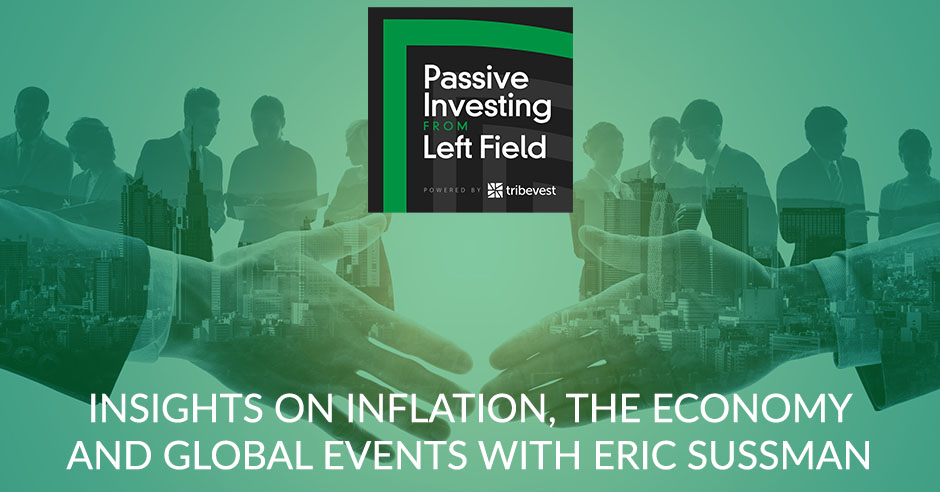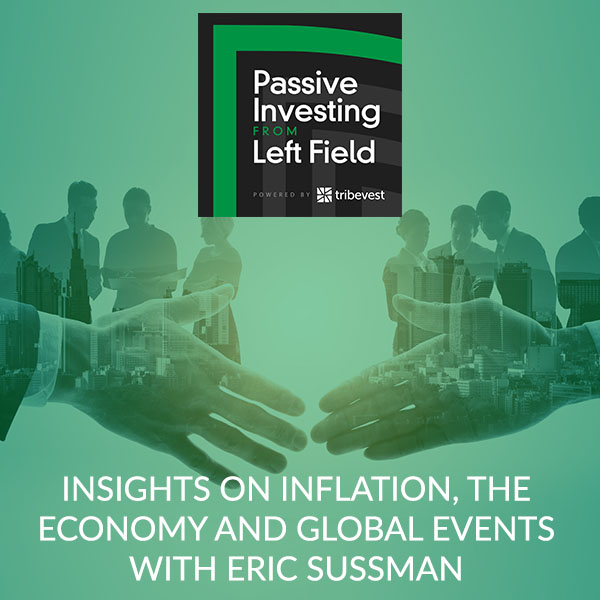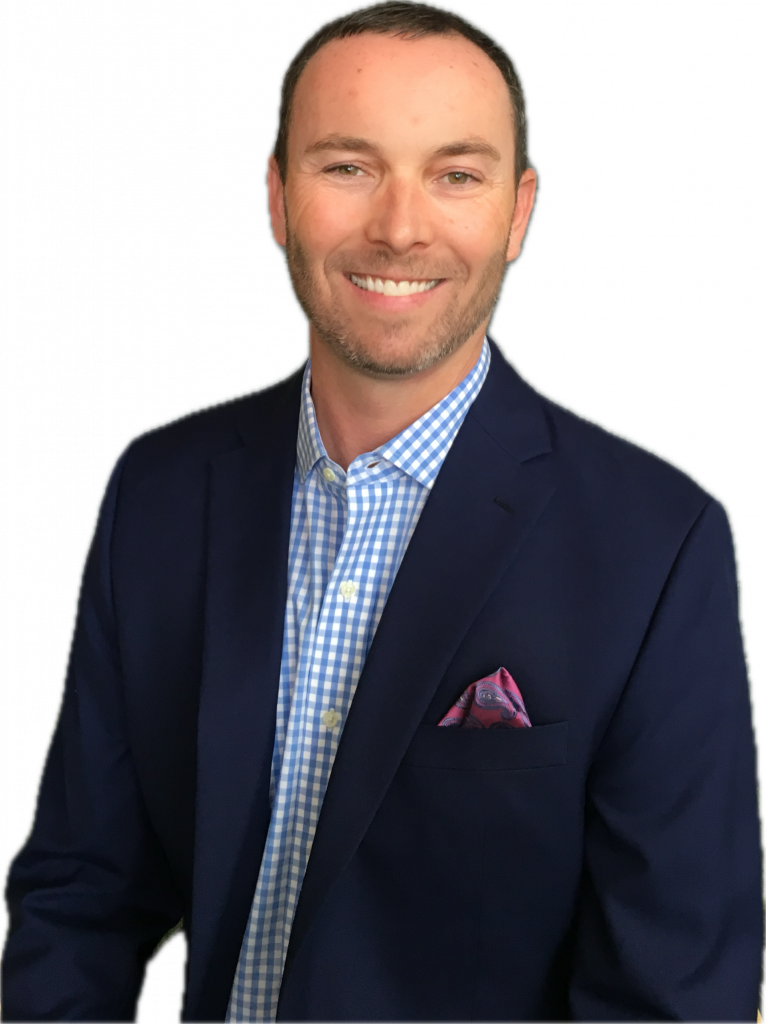
With so much happening in the world today, the state of the economy has been messy and unpredictable. Yet, the real estate market is booming. Jim Pfeifer sits down with Eric Sussman, a Founding Partner at Clear Capital, to learn how investors should approach the industry nowadays. They discuss the effects of inflation on real estate and the economy, how to maximize rent increases, and why a lot of deals are able to complete a full cycle much faster than in the past. The two also bring their discussion to global events as they talk about the impact of the rising gas prices due to the Ukrainian-Russian War and China’s attempt to implement a zero-tolerance policy for COVID-19. Tune in to learn more!
—
Listen to the podcast here
Insights On Inflation, The Economy And Global Events With Eric Sussman
I am very excited to have a repeat guest. Eric Sussman is a Founding Partner of Clear Capital and an Adjunct Professor with UCLA’s Anderson Graduate School of Management. He was previously on Episode 21, and he spoke at our May 28th, 2022 Left-Field Investors Meeting, which you can view on our channel. Eric, welcome to the show again.
Thanks, Jim. It is great to be invited back to the party.
We had a great time the first time, so we are going to do it all over again. Can you give us a brief journey of how you got here and how you got into real estate? If readers want to dive in and hear the whole story, they can go back to Episode 21. Give us the Cliffs Notes here.
That takes me back to junior high school or high school. It was a career pivot. I was a CPA accountant type from Pricewaterhouse. I am sure many of you are familiar with that name. I went back to graduate school to get my MBA, and it was there that I made the pivot into real estate. After getting my MBA, I worked for a small shop with someone who was doing a smaller scale of what we at Clear Capital do. That is sponsoring real estate partnerships and investment opportunities.
I was also doing some private lending. I was itching and always had an itch to be on my own. I started the predecessor firm, which morphed into Clear Capital, which is a real estate private equity firm. We have got about over a billion dollars of management and a lot of faces now. It has been great, and very blessed and grateful for it all.
As I said, this is your second time on the show. You have done a couple of monthly meetings for us. We appreciate everything from Clear Capital. You guys are great partners with us. We got to jump into this. Inflation is the main thing everyone is talking about besides Ukraine, but let’s start with inflation. Is it transitory or here to stay? Is it going to be here forever? How does it affect real estate? What is going to happen?
I have been writing about inflation for a number of years. We got lulled into a sense of complacency which happens over time. Most of us have not experienced any significant inflation since the 1970s. There was that old joke that if you lived through the 1970s, you do not remember it anyway. In any event, here is the punchline, and it is a sobering one. The Fed has created a true monster. They ran the spigot on money supply and the printing press in what may have been misdirected actions. In doing so, they have created this monster of inflation which is now printing at 8%. We have had months over months of inflation rates that we have not seen since the late ’70s and early 1980s.
It is going to be here for a while. I am not sure how long it is going to persist, but we should all get used to higher inflation rates and what that looks like in terms of whether it is 7% or hits double digits. It is going to be at least for the next several months. We will see how that plays out. This is one of those things where I get paid to predict the future. Many of you know me from being on the faculty at UCLA Business School too. I do a lot of talking about the markets, and it is uncomfortable for me because I do not know how long this is going to last and its ultimate impact, partly because it is consumer psychology.
Everyone has gotten used to 2% to 3% inflation rates for as far back as we can remember. How will consumers, investors, and others respond to much higher inflation rates as we look forward? Jim, I look squarely at the Fed. I’m sure you have some questions you want me to talk about. If you are Jerome Powell, Chairperson of the Federal Reserve, he is going to have to thread a very fine needle or walk a narrow tight rope as he balances the inflationary reality with the need to not push us into recession, especially with Ukraine and likely lower GDP prints as you look out into 2022.

We are real estate investors, multifamily, and other assets, but how is persistent inflation? We are done with the 2% to 3%, possibly for some period of time. I know no one can predict the future, but what do we do with real estate then? It seems like things have been going so well. It should have been going up. Rent increases in 2021. I was looking at your newsletter, like 20% or some crazy thing in some markets. We live in a finite world. We cannot have infinite growth. What do we do as real estate investors?
There is so much to unpack and think about. Anyone who gives you a flippant simple answer, “You buy this or sell that,” is not thinking through the calculus. You and I have talked before on several occasions, and I am always thinking about headwinds and tailwinds. It is how I think about everything. Maybe you met some of my students. I drive them crazy to think deeply about these issues. Let’s unpack it in a couple of ways to think about it.
The way about real estate or any investment, in its simplest terms, is a numerator and a denominator. Think of the numerator as cashflows, rents, or however you want to think about it, and the denominator as interest rates or cap rates. Let’s talk about the denominator as the cap rates and how we think about that Cap rates being what is going to be the overall pricing of real estate. In normal times as you have inflation, it increases in the yield curve. You would expect an expansion of cap rates which means lower real estate prices. All else equal is unequivocally accurate.
It is hard to imagine a world where you have got 8% inflation and cap rates. There is a disconnect if you are talking about multifamily assets in the 3% to 4%. Part of people making heads and tails of that reality is it goes to the money supply issue. There are record levels of money out there. I am sure many of your readers and others out there are wondering, “What should I do with the cash I have in the bank, which is burning a hole in my wallet and earning negative real returns?” The money sitting in the bank is getting what I like to describe academically as between jack and squat, yet inflation is running 8%.
You do not have to be an MBA or a CPA to sit there and say, “0% that I am earning in the bank versus an 8% inflation print is not a good thing.” You are destroying value every month that is sitting in cash. That is a very broad global problem. We have record levels of money supply sitting there. This MMA battle on higher inflation and higher interest rates would normally be an expansion of cap rates, coupled with a ridiculous amount of capital sitting on the sidelines. At every level, whether it is households or the Blackstones of the world, it is burning holes and pockets.
You are going to have this battle which means you are going to have some cap rate expansion, but not as great expansion as you might otherwise experience because there is so much money looking for investment homes. That is the denominator. The numerator is a little more interesting to me because that is about the cashflows and the rents you are going to achieve on any particular real estate investment and how that might adjust for inflation.
For those readers out there that might have these long-term leases, triple net investments ranging from what could be a Walgreens single-tenant retail property to some industrial properties that also may have bumps in rent every 2 to 5 years depending on how you have structured it. Some of them do adjust annually. Generally, those have ceilings.
You are not allowed to increase the rents willy-nilly with changes in inflation. There are ceilings or set percentage increases on the rent. Those will have some adjustments, but you are going to be hurt by inflation or increases. You are just not able to increase the rents commensurate with inflation pressures. We get to multifamily and my sense there. This is where we are in multifamily. I know I always sound like I am preaching the gospel of multifamily. I have been accused of that more than a few times. It is our business, so admittedly, I may have a slight bias.
If you stop and think, in multifamily, you have short-term leases anywhere from six months to a year. Some are month to month once they are past their lease term. For most of us, we are in non-rent-controlled environments, or at least we are looking at investing in non-rent-controlled environments. In theory, you can raise the rent to whatever the market is. The question is, can your tenants afford it? That is great to be able to chart and say, “Dear tenant, your rent is going from $1,200 to $1,400 next month. You can send a thank you letter to Jerome Powell, Chair of Washington DC. I am sure he will get it.” I am sure he is getting more than his fair share of dislike mail.
[bctt tweet=”Most of us haven’t experienced any significant inflation since the 1970s.” via=”no”]
It ties to wages, which is one of the big inflationary pressures. Wages have gone up. They are going up and across the board. My sense is that tenants will be able to shoulder higher rent hikes on multifamily due to their higher wages. They may not be thrilled to pay them, but that is important. Overall, what I would encourage folks to think about is, “Are you investing in real estate assets where your ability to increase rents along with inflationary pressures are somewhat correlated?” If you can do that, you are in great shape. If you are buying flat twenty-year leases, you are buying a bond in an inflationary environment which is not where you want to be.
If I am buying into real estate and it is cashflowing now, especially if it is multifamily, you can always increase rents if your tenants can afford to pay for it. Is that how an investor should look at it? Should we only be investing in things that are cashflowing now rather than development deals? Is there a change in how we should look at what type of investments we are looking for?
That is a much more complicated question. You are talking about development deals. I suppose it depends on the development itself and where you think pricing will be. The thing about development, let’s say it is a 30 to 36-month endeavor, and you are dealing with all that uncertainty. It is better if it is not cashflowing.
Meanwhile, developers will tell you, I am sure some of you have some friends, or some of you are involved in the construction business, that whether it is raw materials or labor, construction costs are rising 20% to 30% a year. I have no doubt that the trend of inflationary pressures is because of supply chain issues and what is going on in China. If you follow the news, Shenzhen is closed down for COVID issues. Our supply chain woes are only going to get worse.
That means that your construction costs are going to be up substantially over 2 to 3 years. The key is if you are going to invest in those deals, what do you think the pricing, when you are out of the ground, get your certificate of occupancy, and are finally going to recapitalize or monetize that endeavor, looks like?
You need to underwrite and think about if you are going to be selling a stabilized asset and what the leasing environment is going to look like 2 to 3 years out, whether those rent rates that those tenants can pay are going to move with that inflationary pressure and your feeling on the construction costs. If the answer is no or you are not sure, then I would stay away. It would be best not to take that risk because it is so much uncertainty. That is on the development front, Jim, at least the way that I see it.
You had mentioned that there are lots of cash in people’s pockets, and you can see that when a new investment comes up and people are all over it. It fills up very fast. I know the Fed has been printing money and sending people checks, but we are having inflation. Why is there so much money in consumers’ pockets?
It is not just about the Federal Reserve putting money in people’s pockets which it did quite literally and figuratively. More than a few of us got those checks, PPP loans, the rest of it, and reverse payments. To the extent that people have assets, whether equities or real estate, which a lot of your readers do already, they have experienced tremendous growth in the value of that portfolio over the time period. Until 2022, it has been good times. We are back with Jimmie Walker, the 1970s, and Good Times. Most of your readers own a home or more than one home. Those were up nationally by nearly 20% in 2021. That was compounding over other increases over the last number of years.
We have had an incredible run, same with multifamily, industrial, and equity markets. S&P 500 was up 28% in 2021. Almost anywhere you threw darts, people with assets have done well. It is not just about the money printing, which was incremental and significant at least for a lot of folks. For your readers and our investor base, things have been pretty good and also for white-collar workers. That is the issue. We got the cash sitting there earning those anemic savings rates at your local Wells Fargo.

That means all capital out there chasing deals seems like it would put pressure on syndicators that are buying real estate to be more aggressive. How do we analyze that? As an investor, I see first-year rent increases of 8%. I am like, “That seems too aggressive.” What are some other ways that I can figure that out? It seems to me that the natural tendency is to be, “People are going to have to find something to buy. They are going to have to find a place to put their money. There is going to be some aggressive deals out there.” Is that what you are seeing?
No question. Discipline is the watchword, and I am constantly preaching that to our underwriters. The net result is we are bridesmaids or groomsmen many times. It was a deal outside of Denver which was just that. It was, “Eric, we are at this pricing. The broker said that we need to be at that pricing if we are going to get this deal.” I walked through the numbers, and I was like, “No, I will be the bridesmaid or groomsmen this time.” That is life in the big city. Maybe I will look back and kick myself in the shorts. I have done that many times. Discipline is important. It means being thoughtful and mindful of the underwriting.
I do not think necessarily 8% rent increases are out of the norm, depending on the market, the property type, and what value landlords might be adding to the units. You have got to be conservative. Sometimes FOMO or Fear Of Missing Out leads to some bad investment decisions, and you are being very aggressive.
Aggressive brokers are pushing people to put money hard on day one, non-refundable deposits, accelerate your due diligence, waive your loan contingencies, and the rest of it depending on the asset. There is nothing wrong with saying, “I am not going to do that,” or, “Maybe I’ll shorten my due diligence period and hustle.” When you start putting money down non-refundable and playing in that sandbox, just be mindful and thoughtful about what you are up to.
It seems like a lot of these deals are going full cycle faster. I have been in several deals that were 5-year to 7-year holds. I am already out of them in eighteen months. Another one was they had already achieved their business plan in thirteen months. I am sure it is not sustainable, but how is that happening?
We have a deal in urban park Aspire Midtown as we have renamed it in Arizona. We bought it before, and what you described. I get a call saying, “The asset is worth X dollars more than we paid. Should we sell?” The answer was yes. We achieved a business plan, and I can’t imagine this party continuing like it has. That speaks to the things we have talked about, the amount of liquidity out there, and people looking to place money. I mentioned Blackstone in passing earlier as a data point for everybody to think about.
Blackstone, the behemoth, has different institutional products, but they also have some retail products directed to folks like us. Through the fourth quarter of 2021, they were raising $2 billion a month from retail investors. I would like to have that problem. That sounds like a first-world problem. I am not sure if my Levi’s jeans can hold $2 billion in a pocket, but I would certainly try. The question is, what do these folks do? They get paid to put money out. They get asset management fees and whatever else. They are under tremendous pressure to place the money, as are all fund-based investment vehicles.
We, as syndicators, are not feeling that same pressure, but we feel pressure. We have overhead and mouths to feed. If we do not do deals, what are we going to do? We are working harder, but that is the issue. It is that confluence of realities and interest rates, even with the rise in rates and tenure. In historical norms, that is low. You are dealing with all those market realities, and that is causing this asset inflation which we benefited from. That means it is going to get more challenging looking forward.
It seems like every event that happens, you think, “This is it. COVID hits and the stock market drops 40%. We are in for it.” We had a bad month in the stock market. Real estate was not affected. You mentioned China, so I would like to talk about that because they were trying to do a zero-tolerance policy for COVID. Now they are having some problems. Supply chain issues are going to compound all of this because if China starts shutting down, what is going to happen?
[bctt tweet=”Be mindful and thoughtful about what you’re up to. ” via=”no”]
We have to step back and look at all the things that have gone on these Black Swan or 4-Sigma events. COVID, maybe we are pulling out of that, but now we are seeing another variant of Omicron, which has now hit China and Ukraine, which we will talk about. You alluded to that and the inflationary pressures we have been dealing with. The news out of Shenzhen, China and Hong Kong’s effort is to create zero cases of COVID. That has proven to be a fool’s errand, especially with this latest variant. This is coming from someone who is triple-jabbed and had a breakthrough case of Omicron. For the record, I am super immune for another month.
It was inconceivable and impossible in a global world with an open economy to have zero cases. China and extremes to which they have gone, they closed down cities. Shenzhen, which is one of the major industrial manufacturing facilities or areas in the entire world and very closely tied in with our supply chains and everyone else’s, is now shut down. I have not read the latest news, but they were shutting things down there to prevent the spread of COVID. We need a hole in our hands because that is going to exacerbate these supply chain woes and the inflationary pressures that have created. Buckle up. The captain has turned on the fasten seatbelt sign.
The next one is Ukraine’s oil and gas prices. What is going to happen to all that?
What is going on in Ukraine is a humanitarian crisis. The war crimes are inexplicable. It is something that we have not seen since World War II, the invasion of a sovereign nation for no reason. It is not even clear what the rationale is. I want to make it clear. Ukraine’s impact on the world in terms of global GDP is very small. It is the second-largest country in Europe, but in terms of GDP output, it is very minimal in the impact.
A lot of it is psychological. Russia is an exporter of oil and things like wheat. We see wheat prices go up. It is just on the margin adding inflationary pressures and also geopolitical uncertainty, which is never good for markets or investors. We are all watching the news, and it is devastatingly heartbreaking. That can never be good for investors or consumers from that reality. What is happening is much broader than Ukraine and its impact on GDP is very nominal and whatnot. It is a slap in the face of this globalization trend.
I do not know how many of you have read The World Is Flat by Thomas Friedman. It was a bestseller and a very excellent book. It changed my way of thinking about the world and interconnectedness and globalization. Over the last number of years, all of us have seen a flattening globe, the supply chains are global, and we are all connected.
Vladimir Putin has undone 25 years of economic development in Russia in weeks. It is quite a feat. We called into question Thomas Friedman’s premise that if we are interconnected economically in a meaningful way, it will be anti-aggression because why would you attack? Why would you create war when the impact economically is going to be devastating?
That was a very logical concept. Jim, you and I are tied to the hip economically, and we may disagree in so many ways, but I am not going to attack Jim. If I do, I am cutting my nose off to spite my face. Putin has done that. That is why you listen to the real experts geopolitically. I am mostly listening to folks like Ian Bremmer, who is terrific. You should read his work. He is very knowledgeable about geopolitics and People like Mike McFaul, who was the ambassador to Russia for many years in the Obama administration. They are all confounded. They can’t make heads or tails of where the end game is.
This is not going to create value in any meaningful way for Russia. It is the uncertainty. It is the geopolitical risk we now face. We have all felt safe that maybe nuclear weaponry was a deterrent, but now you have got a sociopathic numb skull that seems to be doing things that are completely against logic and economic benefit to his country. How does anyone rational make heads or tails of that? You might find this interesting.

This is going back to the ’70s. People say that negotiating with Henry Kissinger when he was Secretary of state, the analogy was, “Imagine two drivers heading towards each other at a very fast rate of speed on the edge of a cliff. Henry Kissinger is driving towards you at 80 miles an hour. Suddenly, he opens up his window and throws out the steering wheel. What are you going to do?” That is the thinking when you have someone like Vladimir Putin. We are now negotiating with someone who is not thinking rationally the way you and I would think. What does that mean for the world? It’s a rhetorical question there.
It is scary. It is horrible what is happening to Ukraine, war crimes, humanitarian disasters, and all of that. We feel for those people. At the same time, I need to figure out what does that all mean for my investment. There are two parts to it. One is humanity, and we can feel bad about all that, and I do, but then I got to think, “How is this Ukraine and Russia situation going to affect what I am doing for investing?” Do we keep on the same plan? We talked about inflation. Do you keep on moving forward and make the best decisions you can based on your information, or do you change everything?
Investing is not gambling and speculation. We have had tremendous big speculation the last couple of years, from SPACs to Bitcoin to the mean stocks and on and on. For the rest of us who dabble in some of that stuff because we think it is fun, we need to make sure we understand the distinction between the two. The rest of us keep doing what we are doing, being systematic about it with our cost averaging in the equity markets, or we are more mindful and thoughtful about our underwriting. The idea is we are investing something to flip it.
Your story of, “We execute our business plan in thirteen months. While we are at it, we are going to get our double-digit IRR.” That was great. That is in the past. We keep doing what we are doing. Do not over-lever. Leverage is the bane of long-term investment. There are many times where we over-lever, and then you hit a pothole, and you get in big trouble. Be mindful of the leverage, be thoughtful in your underwriting, think about the ability to move rents or expenses along with inflationary pressures or things that arise, and be more conservative than you might otherwise be. You will be in great shape.
For passive investors looking at deals, whether it is multifamily or anything else, but we are concentrating on multifamily, you say, “Do not over-lever.” How do I evaluate that when I am looking at a deal, and one deal is at 75% leverage, one is at 65%, and 65% is less so maybe that is better, but how do I factor that into my analysis of, “Do I want to jump into this deal with 75% too high? Is 80% too high?” How do you evaluate it?
That is too narrow for me. This is why for passive investors, you need to do your homework on the sponsor. How long has the sponsor been in business? What cycles have they been through? My MBA students at UCLA Anderson between 28 and 32 have never seen a bear market. I have said in class and in other venues that crises separate the wheat from the chaff when it comes to leadership, management, and sponsors.
The key is for all of us when we are investing with folks with gray hair, wrinkles, and whatever that sponsor has, the reality is that sponsor has been through the financial crisis. They have been through the dot-com crisis, long-term capital management, and the freezing of the global capital markets in the fall of 1998. That is the key. You invest with sponsors that have been there and done that. By definition, you have confidence that that sponsor has been mindful of the underwriting and the leverage, given the economic realities. That is important. From there, you can then look at the individual attributes of a particular deal and be critical of the strategy and the underwriting that you are getting.
We have COVID, issues in China, a war in Europe, inflation at home with or without all of that stuff, and a Congress who can’t even talk to each other, let alone do anything. We have this huge bubble of all assets that have been going on for years. I get what you are saying, and I agree. You have to be as careful as you can and move forward. It sounds like when I roll all that up and think about it, have times ever been worse or have times ever been better? I do not know.
First of all, what that preface is, does anyone wonder that tequila sales are hitting all-time highs? It is funny, and maybe this comes from being a teacher for many years. If you were born in 1900 and had the blessings to live until you were 100 and you would pass away in 2000, let’s step back if you think our times are worse. Give me a break. That person who lived to a nice ripe old age of 100 saw 2 world wars, Vietnam, Korea, and the Spanish flu pandemic. They saw many other economic downturns, lived through the OPEC oil crisis, and double-digit inflation in the ’70s. I can go on and on with a parade of horrible. Are times worse? Not even remotely.
[bctt tweet=”Be a little bit more conservative than you might otherwise be, and you’ll be in great shape. ” via=”no”]
We get sucked into the noise and think it is Charles Dicken’s, “The best of times and the worst of times.” There have been far worse times in human history. We have first-world problems. It is not good. It is stressful, but let’s make sure we do not lose our wits. It is a tough time. COVID, Ukraine, homelessness, wealth inequality, and what is going on in the world is tough.
There are a lot of problems. Congress cannot tie their damn shoes and put a microphone in front of half these people. They do not care about policy. They just want to talk. They are not doing their damn job. They should be crafting policies. Instead, they are just talking to microphones. I can go on, but let’s not lose perspective.
It is hard to look at all those things I listed and think, “What are we doing here?” A lot of us that are investing in these assets are doing well when all this craziness is happening. The way you explained that is good. There have been worse times, and we will get through this. There is a perspective, and we need to carry on. This is a financial show. What we want to do is figure out how we invest. You have given some great advice. You just be thorough, meticulous, and keep moving forward.
Investing should be a long-term endeavor. It should not be gambling speculation, “I am going to buy this multifamily asset, invest in this passive deal, then it is going to be monetized in 6 months for 5 to 7 years.” I can give you data points until the cows come home. If you look at any five-year period in history, we have never had a down stock market over five years, even with all-term blips that we are crushing seemingly. It is the way human nature is. I want to speak in anecdotes because perspective is so important.
Think about a place like Phoenix. We talk about Phoenix, which literally and figuratively is smoking hot. Let’s go back to 2007 in the great financial crisis. Let’s talk about Phoenix and Vegas. How are those markets years ago? Foreclosure central, you could pick up assets on the cheap like nobody’s business. Let’s fast forward to before the pandemic to the beginning of 2020, the end of 2019. The median home price in Phoenix is $285,000.
Let’s fast forward to the first quarter of 2022. The median home price in Phoenix is approaching $450,000. You think about that from the depths of where you could walk down the streets of Phoenix and see for-sale signs or real estate-owned REOs, foreclosure properties. People are clamoring to get into Phoenix like it is the Costco free sample line on a Saturday. There is your investor psychology. Do not get sucked into the short-term noise. Longer-term, think about where the puck is going, where demographic shifts are happening, and you are going to be in great shape.
There is one question I wanted to ask you. It is about Oregon because you are investing in Oregon. This is off-topic, but it is real estate. There is rent control in Oregon. You guys have been doing quite a few deals there. Can you tell me how you deal with rent control?
Let’s clear about the rent control in Oregon, which is 7% plus CPI, or it has got a cap of 9%. There is rent control in Oregon statewide, but it is fairly liberal in terms of the rent increases that are allowed. The concern that I have and others have is that they start with these fairly high ceilings, and then they cut back over time.
To make sure that we understand, the rent control in Oregon is fairly liberal in the spectrum of rent control. The other thing about Oregon is people, like Washington State, think of Portland or Seattle. There is a huge and substantial difference politically between the urban cores of Portland and Seattle, Oregon and the Washington States, and the surrounding areas, which tend to be far more conservative, redder, and more open to landlord relationships.

That does not mean we are buying there willy-nilly. We are not buying in Portland Proper. In fact, it would shock me if we ever did invest in Portland Proper as much as it is a great city, or at least it used to be. In other communities outside of Portland where people are now relocating from that urban core and where I can raise rents up to 9%, count me in if the underwriting works.
It is always interesting to me when I find someone who is investing in a state where no one wants to invest, like New York or Oregon, because of these rent controls. If you understand the market and know that it is not as severe as it sounds when you read the headlines, there might be an opportunity there because other people are staying away.
You made another good point which is being a contrarian. We talked to a lot of investors, and many of them say, “Eric, I will not touch Oregon. Do not even talk to me about Oregon.” I listen to that. I like hearing that because everyone is in love with Phoenix. They could not stand Phoenix years ago. Now, it is The Bachelor. You can’t give enough roses out to Phoenix properties. That means stay away or be much more careful in Phoenix. I hear people dissing on Oregon. I am like, “That gets my antenna up. Maybe I should be looking there.”
I want to end with the easiest question because you are good at predicting the future. Is there going to be a banner hung in Pauley Pavilion? Should I put all my money on the Bruins?
You said this was the easiest question that you would ask me. That is the toughest you have asked me. You all should know that I am a third-generation Bruin. My grandfather went there. My mother went there. I went to UCLA. My wife went to UCLA. I went to law school there, and I am on the faculty there. When they take blood samples, they often see blue and gold coming out of my veins. I have a feeling that Arizona is looking terrific as much as it breaks my heart to say that about one of our Pac-12 rivals.
The Pac-12 is looking pretty good this 2022. The Trojans are not too shabby, but it is going to be a great tournament. It is going to be madness. I do not know how many of your readers love this time of year like I do, where I can watch Akron play well with the Bruins and be engaged. Isn’t it great? Let’s hope there is some Cinderella that gets to the sweet sixteen. They are the most fun, aren’t they?
They are. Similar to you, I am a third-generation Ohio State Buckeye. The Bruins are a dark horse, and the Buckeyes are not long for this game, but that is a whole other show. The real last question I have for you is, would you like to give recommendations for podcasts? If you are not a big podcast listener, maybe a book or a place to go to read about real estate or current events.
I do not listen to many podcasts. My life is so crazy busy between the Clear Capital stuff and UCLA. I am a news junkie. I read so many news sources that my head spins sometimes, but it is funny. I listen to One-Offs occasionally. I listened to an interesting podcast. It is not relevant to our dialogue here, but I thought it was great. The Wall Street Journal did one on Enron. It was a six-part series on Enron, which if you listen to it, you will enjoy. It was a fascinating look back at Enron and interviews with a lot of the key players now looking back historically.
That is also relevant because we have had and will have a lot of fraud now in the markets against the SPACs and stocks. As far as books, I did through my laundry list of books that my students asked me, but there are not any recent ones. I mentioned The World Is Flat. There are a few that are great ones that are worth reading, and I enjoyed. David Einhorn’s book, Fooling Some of the People All the Time, is a great read. If you want a simple readout, you can read it on a beach, Fooled by Randomness by Nicholas Taleb, which is years old. It is a classic, but it is a short read.
[bctt tweet=”Investing should be a long-term endeavor, not gambling speculation.” via=”no”]
One that may not be on your radar, but I enjoy it too. It’s also a short read. It is good beach time, spring break reading, Confessions of a Sociopath, written by a former law professor at BYU under a pseudonym. She is former because people figured out who it was, and she lost her job, but it is a fascinating look at sociopathy from a true insider. You think about Vladimir Putin and perhaps some of our leaders, who are sociopaths, which we need to avoid. I thought that was a great read, but nothing recent. I apologize that I am going back in time on that.
Those are some great recommendations. Thank you so much for being on the show again. It was fabulous. We appreciate it. We will be calling you to get you on again at some point in the future.
I look forward to it. To all your readers that are out there, be well, and thanks for reading. Give Jim all the support he needs. He deserves that. He is a hardworking guy, and besides, he is a Buckeye. We have to have some sympathy right there.
That is a great way to end it. Thank you very much.
Take care, Jim.
—
I love talking with Eric. He is such a bright guy, entertaining, funny, but so much knowledge. I can’t get enough of chatting with him. Some of the things that stuck out to me when you are investing or anything you are doing is you look for the headwinds and the tailwinds. You find the things that are working for you and against you. You analyze them and put them in the perspective of the investment you are analyzing. That was great advice, along with do not over-lever. That is something that we should always be thinking about. That is something more important now than it has been before, but keep moving forward. We can’t just sit on the sidelines. We can’t not invest if we have capital. You are losing.
I learned from another person that I admire that you do not need to look for a return on every single dollar. You do not need yield on every dollar in the bank. It is okay to have some strategic reserves, but you still need to keep moving forward. If you are making good decisions, doing the right analysis, and you are with the right sponsors, you can still invest even in these turbulent times, which, as Eric noted, are not the worst of times. They might not be the best of times. There is so much going on, and it is super stressful, but that does not mean we stop moving forward and stop investing.
It does not mean that these are the worst of times because they certainly are not. The other thing is to do your homework on sponsors. This is nothing new to Left Field investors. This is almost the biggest reason why we exist. It is to figure out sponsors. How do you evaluate sponsors? You would want sponsors or people on the team to have gone through multiple cycles. Someone who started doing this in 2012 has never been through anything adverse yet. How are they going to react?
If you have a choice between two of the exact same deals and one is with someone who started investing in the ’90s, and one in someone who started in 2012, nothing against the newer person, but you might have more success with someone who has been through some cycles, has some experience, and has been in the business for a long time. That is great advice. He also mentioned that related to this is crises. It separates the good sponsor from the bad sponsor or someone who knows what they are doing from someone who does not know what they are doing.
How long have they been in it? Have they been through some of these crises? Have they been able to succeed even in these difficult times? Eric is a great guy. I appreciate all of his contributions to Left Field and all he has done for us being in meetings and coming on the show. We will 100% have him on again. I recommend you go to Clear Capital and check out his newsletter. It is, as this show was, reading him, entertaining and informative. That is what you can get from Eric every time. That is it for this episode. We will see you next time.
Important Links
- Clear Capital
- The Economy, Inflation, A Sow’s Ear and Real Estate with Eric Sussman – Past Episode
- May 28th, 2022 Left-Field Investors Meeting – YouTube
- The World Is Flat
- One-Offs
- The Wall Street Journal – Bad Bets Podcast
- Fooling Some of the People All the Time
- Fooled by Randomness
- Confessions of a Sociopath
About Eric Sussman
 Eric Sussman is a founding partner of Clear Capital, LLC, overseeing the firm’s capital, equity, and debt departments and strategic planning functions. Mr. Sussman provides leadership to the firm in the areas of private equity, joint ventures, and fund formations.
Eric Sussman is a founding partner of Clear Capital, LLC, overseeing the firm’s capital, equity, and debt departments and strategic planning functions. Mr. Sussman provides leadership to the firm in the areas of private equity, joint ventures, and fund formations.
Mr. Sussman has over 25 years of multi-faceted real estate experience and has been pivotal in some of the firm’s largest deals and property acquisitions. Mr. Sussman’s past experience is broad and varied including key positions at Amber Capital and Sequoia Real Estate Partners. Mr. Sussman began his career with Price Waterhouse (now Price Waterhouse Coopers).
In addition to his position at Clear Capital, Mr. Sussman has been an Adjunct Professor of accounting and real estate at UCLA’s Anderson School of Management since 1995, where he been voted “Outstanding Professor” 15 times by MBA students. Additionally, he has been named as one of the top ten most popular business professors by Bloomberg BusinessWeek, and one of the 20 most influential professors alive today by “Top Business Degrees.”
Mr. Sussman received a BA in Economics (Summa Cum Laude) from the University of California, Los Angeles and an MBA (Arjay Miller Scholar) from Stanford’s Graduate School of Business. He is a licensed CPA and real estate broker (inactive) in California. He is a member of the Board of Trustees and Chairman of the Audit Committee of Causeway Capital’s Group of mutual funds, and a member of the Board of Directors of three non-profit organizations: Jewish Family Services, UCLA Hillel, and Pacific Charter School Development.
—
Our sponsor, Tribevest provides the easiest way to form, fund, and manage your Investor Tribe with people you know, like, and trust. Tribevest is the Investor Tribe management platform of choice for Jim Pfeifer and the Left Field Investors’ Community.
Tribevest is a strategic partner and sponsor of Passive Investing from Left Field.








